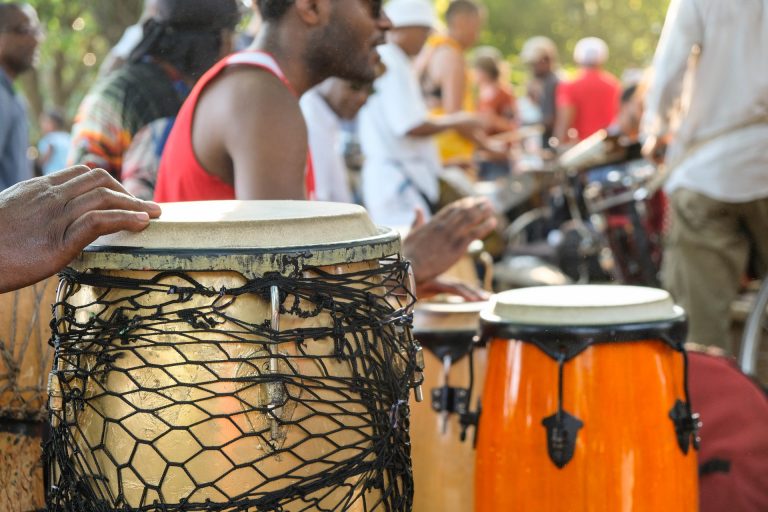
Playing Latin Music: A Quick Guide To Learning A New Instrument
08 July, 2021Music is something that people can connect to on many levels. They can enjoy the technical side of musical score, or the memories it can evoke. It can take you back to a holiday in Peru or a honeymoon in Venice. When people listen to Latin music with its congas and shakers, they often find themselves tapping their fingers or feet, or getting up to dance.
Many music lovers decide to take things up a level by learning to play an instrument. It can be hard to choose the right one, and it’s never as easy as it looks, though easy songs to learn can help a lot. It may be that you are a lover of Latin music who is starting out on this journey. Whatever the instrument or music style, however, the principles are the same. Let’s look at them now to discover you can learn to play a new instrument.
Understand Your Genre
Some people play traditional instruments because it connects them to their ethnic roots. Latin music comes from the Spanish and Portuguese-speaking nations including the Caribbean Islands, Central and South America and Mexico. The music is rooted deeply in the culture and is often played at ceremonies and festivals, and on national holidays.
Latin music is highly rhythmic, hence the use of bongo drums, claves, scrapers and cowbells. If this is your chosen genre, percussion instruments may be your starting point.
Pay For Some Lessons
If you become a self-taught drummer you could be holding the sticks wrongly from day one. Teachers help their students avoid unhelpful habits and wrong postures.
Teachers know the best musical exercises to set and the correct learning speed for each individual. When weekly homework is set after the music lesson, it can be better than relying on your own motivation to self-learn.
Harness The Power Of The Internet
You can quickly find specialist websites that discuss your favorite musical styles, instruments and musicians. Youtube is great for people who don’t spend all their time in books, and who learn by watching. There are loads of music videos to see, and you can subscribe to the specific channels you most enjoy.
Online lessons are a great way to learn music, and this has proven even more beneficial during the current pandemic. People go to this R&B Piano Chords Tutorial to learn how to decorate their chord progressions and incorporate jazz chords. Whether it’s syncopation or blues scales and fills, help is available on the internet.

Choose The Right Instrument For You
Whilst some people want to go wild on a drum set, others prefer to sit quietly playing the piano. There are different families of instruments that you may be drawn to which are percussion, strings, brass, woodwind and keyboard. You may have fingers that are too short for playing guitar comfortably, or might prefer to be part of an orchestra.
You’ll need to decide how much time you have to devote to your new interest, and how much space you have for storage. Costs and noise (think about soundproofing) may also be a deciding factor.
Be Wise When Buying
If you plan to try a few lessons to see how you get on, don’t invest huge sums in buying an instrument. It’s often possible to hire an instrument, and your music teacher may be able to help you with this or even to supply one while you have lessons.
If you buy, it’s worth getting something that works well but that can be upgraded if you really make a go of your hobby. You also need to consider the size of the instrument. Guitars, for example, come in a variety of different versions from a child’s to jumbo-sized.
Let Someone Guide You
You may know someone who can play the instrument you are interested in. Let them help you make the best purchase. Alternatively, ask the people working in your local music store. They can advise you on the practical aspects and prices.
There may be extra equipment, accessories and books they can also recommend. Someone more experienced than you may be able to advise you on the best teacher or music school in your area, too.
Practice Daily
Guitarists find their fingertips take a while to harden against the strings, and many instruments will take a while to become familiar. Don’t despair when you are asked to repeat scales or to learn basic nursery rhyme tunes. Over time the music will become more fun and varied, but in the meantime this stage is essential.
Try and spend 30 minutes each day on your instrument, and after a while, your hard work will pay off. Don’t play for too long either as this can be counterproductive.
Choose Music That You Love
Just as with taking regular daily exercise, people are more likely to remain disciplined if they choose something they enjoy. Whether it’s the lead guitarist in AC/DC or a gentle flute player in an orchestra, emulate what you love. If you learn just a few basic guitar chords, it’s amazing how many songs will open up to you. For instance, just three chords can enable you to play a host of different songs from country music.
Don’t aim too high at first, however. You’re unlikely to sound like Jimmy Hendrix or Rachmanov from day one. Besides playing along to your favorite music, it’s also wise to watch a master musician playing it, to see what you can learn.
Play With Others
If you are playing a tune on your own and you do something wrong, it’s easy to stop and start again. There’s no such luxury if you join a band or orchestra, however – they will keep playing! Being with others is a great way to enjoy your hobby and to make new friends in the process.
The main thing to say in conclusion is to enjoy yourself and be patient. Get a good instrument and let an experienced person teach you. Over time you will reap the rewards of what may be a lifetime of fun and enjoyment.
Follow Sounds and Colours: Facebook / Twitter / Instagram / Mixcloud / Soundcloud / Bandcamp
Subscribe to the Sounds and Colours Newsletter for regular updates, news and competitions bringing the best of Latin American culture direct to your Inbox.

